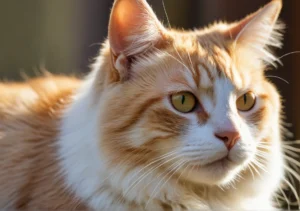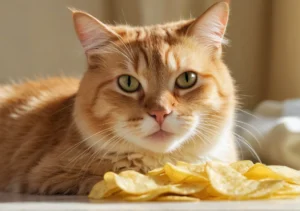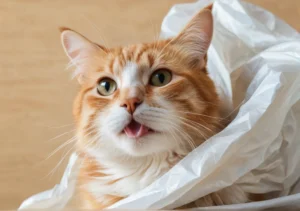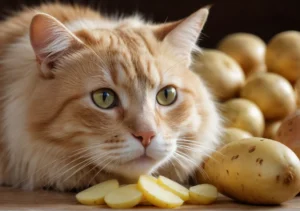Cats seem to have an inexplicable attraction to the sound of “pspsps”, but have you ever wondered why? Let’s delve into the reasons behind this feline fascination.
The Element of Curiosity
Cats are inherently curious creatures, constantly exploring their environment to satisfy their inquisitive nature. When they hear the familiar sound of “pspsps”, it triggers their curiosity and prompts them to investigate further. This noise mimics the subtle sounds that small animals make, akin to rustling leaves or scurrying prey, which naturally piques a cat’s interest.
Additionally, the repetition of the “pspsps” sound may also signal to a cat that there is something worth investigating or exploring, as it stands out amidst the background noise. This unique auditory cue draws their attention and entices them to follow the sound to its source. In essence, “pspsps” acts as a mysterious call to adventure for our feline friends, compelling them to seek out the source of the sound and uncover what new and exciting discoveries await them.
Communication and Connection
Beyond tapping into their innate curiosity, the sound of “pspsps” holds a deeper significance for cats in terms of communication and connection. Cats use a variety of vocalizations and body language to interact with each other, conveying messages ranging from affection to warning signals. When we make the “pspsps” sound, we inadvertently mimic these subtle communication cues that cats use amongst themselves.
By replicating these familiar sounds, we establish a sense of connection and understanding with our feline companions. They perceive the “pspsps” as a form of communication that they can relate to, forging a bond based on mutual recognition and shared language. This familiarity creates a comforting and inviting atmosphere for cats, encouraging them to approach and engage with us in a way that feels natural and safe.
Moreover, the act of responding to “pspsps” can reinforce positive behaviors in cats, as they associate the sound with attention, affection, and possibly even treats. This Pavlovian response further strengthens the bond between human and cat, establishing a harmonious relationship built on effective communication and mutual trust. So next time you call out “pspsps” to your cat, remember that you’re not just making a sound – you’re engaging in a meaningful exchange that deepens your connection with your feline companion.
Instinctual Response
Cats are naturally drawn to high-pitched sounds like “pspsps” due to their evolutionary instincts. In the wild, cats rely on their acute hearing to detect prey or predators. High-pitched sounds mimic the sounds of small prey animals, triggering a cat’s innate hunting instincts. So when you make that familiar “pspsps” sound, you’re basically speaking their language without even realizing it!
Additionally, high-pitched sounds like “pspsps” can also mimic the sounds of a kitten in distress. In the wild, mother cats respond to the distress calls of their kittens. So when a cat hears this sound, they may feel compelled to investigate and provide comfort. It’s like a built-in response that has been passed down through generations of feline ancestors.
Playful Behavior
Playing “pspsps” with your cat isn’t just about making a cute noise – it’s a key way to engage your feline friend and strengthen your bond. Cats are naturally curious creatures, and the interactive nature of “pspsps” can pique their interest and stimulate their playful instincts.
When you make the “pspsps” sound, you’re offering your cat a form of communication that they understand and find exciting. It’s like creating your own little language with your furry companion! This playful interaction can make your cat feel more connected to you and enhance the overall quality of your relationship.
So the next time you find yourself luring your cat with a sweet “pspsps”, remember that you’re not just making a sound – you’re engaging in a fun and meaningful interaction that can bring you closer together.
- Pro Tip: Experiment with different variations of the “pspsps” sound to see what captures your cat’s attention the most. Cats are individuals with unique preferences, so feel free to get creative and find what works best for your feline friend!
Psychological Intrigue
Cats are naturally curious creatures, and the sound of “pspsps” mimics the noises small animals might make in the wild. This triggers their hunting instincts and curiosity, making them more likely to come investigate. Furthermore, cats are known for their sensitivity to high-pitched sounds, so the sharp sound of “pspsps” can capture their attention instantly.
Habitual Association
Repeated exposure to the sound of “pspsps” can create a positive association for cats. When they hear this sound consistently, they may start to associate it with treats, playtime, or attention from their owners. This conditioning over time can lead to increased interest and responsiveness from cats when they hear “pspsps.”
Tips for Using “Pspsps” Effectively:
- Be consistent: Use the same sound each time to create a strong association.
- Reward positive behavior: When your cat responds to “pspsps,” reward them with treats or affection to reinforce the behavior.
- Be patient: It may take time for your cat to fully associate “pspsps” with positive experiences, so be consistent and patient in your efforts.
Environmental Enrichment
Hey there, ever wondered why cats are so drawn to the sound of “pspsps”? Turns out, it’s not just a fun way to grab their attention – it actually serves as a fantastic tool for environmental enrichment. Cats are naturally curious creatures, and using “pspsps” can help stimulate their senses and provide mental stimulation.
By making the “pspsps” sound, you are mimicking the noises that small prey animals make in the wild. This triggers your cat’s hunting instincts and piques their interest, encouraging them to explore their surroundings. It can also create a sense of mystery and excitement, keeping your feline friend engaged and entertained.
Incorporating “pspsps” into your interactions with your cat can help prevent boredom and provide a sense of novelty in their environment. It’s a simple yet effective way to keep them mentally sharp and satisfied. So go ahead, give it a try and see how your cat lights up at the sound of “pspsps”!
Feline Communication Tips
Hey cat parents, are you looking for new ways to communicate and bond with your furry friend? Look no further than the trusty “pspsps” sound! Using this gentle noise can be a powerful tool for building a stronger connection with your cat.
When you make the “pspsps” sound, you are speaking their language. Cats are attracted to the soft, high-pitched sound because it mimics the noises they use to communicate with each other. It signals to your cat that you are friendly and approachable, promoting trust and comfort in your relationship.
To effectively use “pspsps” as a form of communication, try to be consistent with the sound and use it in positive contexts. Use it to call your cat over for pets, treats, or playtime. This way, your cat will associate the sound with positive experiences and be more responsive to it in the future.
So next time you want to connect with your feline friend, try using “pspsps” as a friendly way to communicate and strengthen your bond. Your cat will appreciate the effort, and you’ll enjoy the special connection you share. Give it a go and watch your cat respond with delight!
Fun Facts About Cats and Sounds
Cats have a mysterious allure when it comes to certain sounds, such as the ever-popular “pspsps”. This unique noise seems to captivate our feline friends, drawing them in with curiosity and excitement. But why are cats so attracted to this particular sound?
One fascinating reason behind cats’ interest in the “pspsps” sound is their natural instinct to respond to high-pitched noises. Cats are hunters by nature, and high-pitched sounds often mimic the calls of small prey animals like birds or rodents. When you make the “pspsps” sound, you’re essentially triggering your cat’s hunting instincts, piquing their interest and drawing them closer to investigate.
Additionally, the rhythmic and repetitive nature of the “pspsps” sound may also mimic the comforting and soothing noises that kittens hear from their mother. This can create a sense of security and familiarity for your cat, making them feel safe and content in your presence.
So, the next time you find yourself calling your cat with a playful “pspsps”, remember that you’re tapping into their instincts and providing a sense of comfort and excitement for your furry friend.
Unique Insight: Cats are also drawn to the “pspsps” sound due to the unique vocalizations they make in response. When cats hear this noise, they often respond with their own special chirps and meows, creating a fun and interactive communication between you and your cat. It’s a way for them to engage with you and show their interest and affection in return.
Alex, a passionate animal lover, has experience in training and understanding animal behavior. As a proud pet parent to two dogs and three cats, he founded AnimalReport.net to share insights from animal experts and expand his knowledge of the animal kingdom.




